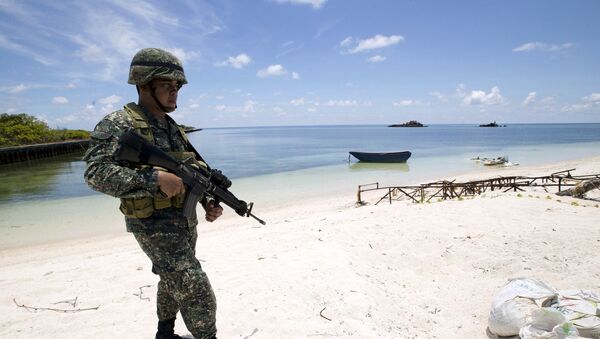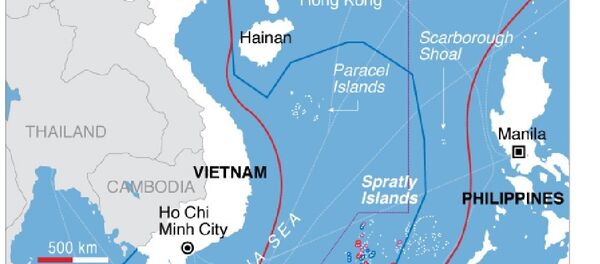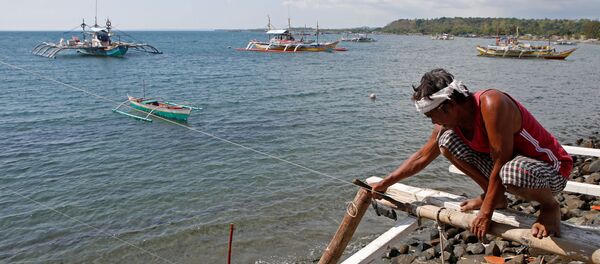There are two central issues, Professor Chossudovsky explained. "One is the fact that the United States has a project to militarize the Asia Pacific region, specifically threatening China. The other issue is…the [territorial] disputes between China, the Philippines, Vietnam, etc."
The second issue, according to the analyst, would be much easier to resolve if it weren't for US involvement, which is using the territorial disputes as part of its so-called 'pivot to Asia', "essentially preventing these countries from reaching negotiations, and building a situation of crisis within the Asia-Pacific region."
Therefore, the analyst noted, "when the president of the Philippines negotiates with China, he does it in consultation with Washington."
Asked about the prospects of the diplomatic flare-up provoking a new arms race in the region, Chossudovsky suggested that unfortunately, one has already begun.
"We are already in an arms race situation, triggered by the United States. That arms race, at this particular juncture, is essentially directed against four countries – Russia, China…Iran and North Korea. These are the four countries which are on the drawing board of the Pentagon, and they have been there for many, many years. In all the war games – the World War 3 scenarios that the Pentagon [plays out] on a routine basis – these four countries are the targets…This is ultimately what is at stake."
The professor reiterated that the militarization of the South China Sea is "there for two purposes: for threatening China, and [for preventing] the countries of the region – of Southeast Asia and the Far East from entering into cooperation agreements which would be more of a regional type." Such agreements, Chossudovsky noted, would serve as a clear threat to Washington's efforts to enforce the Trans-Pacific Partnership, aimed at putting countries throughout the region "under the geopolitical control of the United States."
The professor also emphasized that under normal circumstances, the issue of maritime rights would be resolved through bilateral discussions. A Canadian, Chossudovsky recalled that the United States and Canada also have water boundary disputes. But this doesn't mean that the Chinese Navy butts in and deploys its own ships to these areas. "In other words, what I think is deplorable here is that a legal dispute under the laws of the sea is [being] used by the United States to threaten China and militarize strategic waterways in the South China Sea," the analyst noted.
"A legal decision in the Hague is one thing – it's a trivial issue, and should lead to bilateral discussions. The other more serious issue is the militarization of that entire region, which incidentally is also related to the militarization of Eastern Europe by NATO; it's the same process, and is directed against China, Russia, Iran and North Korea; those are the four so-called rogue states defined in US foreign policy," Chossudovsky concluded.




